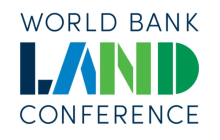Transforming Land Rights and Climate Justice Through Women-Led Social Contract
The session highlighted the intersection of climate justice and land rights, focusing on the transformative potential of a women-led social contract to address the unique challenges faced by marginalized communities, particularly women and girls. Climate change continues to exacerbate land insecurity, disproportionately affecting women, who are estimated to constitute 80% of those displaced by climate impacts. The discussion emphasized that while gender-responsive initiatives in housing, land, and property rights have made strides, they often fall short of challenging deep-rooted power imbalances. Current technical approaches tend to prioritize the perspectives of states and professionals over those of affected communities. The session sought to bridge this gap by bringing together global and local actors, aiming to establish a renegotiated social contract that centers the voices and leadership of grassroots women. Presenters introduced a framework for this new social contract, outlining processes that ensure inclusivity and community ownership. Grassroots implementation strategies were explored, focusing on how local women are spearheading efforts on the ground to redefine land governance in their communities. Discussions also revolved around the adaptation of existing tools for the new framework, aiming to make them more accessible and effective for marginalized groups. The dialogue culminated in a series of recommendations to advance the development of this women-led framework, emphasizing the importance of sustained partnerships and inclusive participation. The session underscored that empowering women and girls as leaders in land governance is not only crucial for achieving climate resilience but also for securing equitable rights and social justice in the face of a changing climate.
This resource has been made available by the organizers of the World Bank Land Conference under the following disclaimer.
This resource has been made available by the organizers of the World Bank Land Conference under the following disclaimer.


